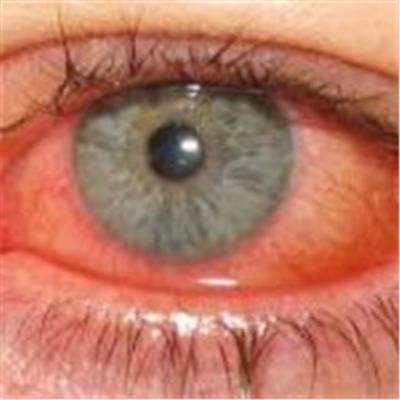INTRODUCTION:
Gastroenteritis, commonly known as the stomach flu or gastric flu, is a prevalent gastrointestinal condition characterized by inflammation of the stomach and intestines. It is typically caused by viral, bacterial, or parasitic infections. Gastroenteritis affects people of all ages worldwide, with symptoms ranging from mild discomfort to severe dehydration.
CAUSES:
- Viral Infections: The most common cause of gastroenteritis is viral infections, including rotavirus, norovirus, adenovirus, and astrovirus. These viruses are highly contagious and can spread through contaminated food, water, or close contact with infected individuals.
- Bacterial Infections: Bacteria such as Salmonella, Escherichia coli (E. coli), Campylobacter, and Shigella are also responsible for causing gastroenteritis. Contaminated food, water, or poor hygiene practices contribute to the transmission of these bacteria.
- Parasitic Infections: Parasites like Giardia lamblia and Cryptosporidium can cause gastroenteritis, often transmitted through contaminated water sources or poor sanitation.
Symptoms:
The symptoms of gastroenteritis may vary depending on the underlying cause and the individual’s overall health. Common symptoms include:
- Diarrhea: Loose or watery stools are a hallmark of gastroenteritis. The frequency and severity of diarrhea can range from mild to severe.
- Nausea and Vomiting: Many individuals with gastroenteritis experience nausea, which may lead to vomiting. This can further contribute to fluid loss and dehydration.
- Abdominal Pain and Cramps: Stomach pain and cramps are common, often accompanied by a feeling of discomfort or bloating.
- Fever: Some cases of gastroenteritis may be accompanied by a low-grade fever.
- Dehydration: Excessive fluid loss through diarrhea and vomiting can lead to dehydration. Signs of dehydration include dry mouth, decreased urine output, fatigue, dizziness, and lightheadedness.
PREVENTION:
Preventing the spread of gastroenteritis is crucial, particularly in settings such as schools, hospitals, and nursing homes. Here are some preventive measures:
- Hand Hygiene: Regularly washing hands with soap and water for at least 20 seconds helps minimize the risk of infection.
- Food Safety: Proper food handling, cooking, and storage are essential to prevent contamination and the growth of bacteria or parasites.
- Water Safety: Drinking clean, treated water and avoiding potentially contaminated water sources can reduce the risk of parasitic infections.
- Vaccination: Vaccines are available for certain types of gastroenteritis, such as rotavirus, and are recommended for infants and young children.
DIAGNOSING FACTORS:
Diagnosing gastroenteritis involves a combination of evaluating the patient’s symptoms, conducting a physical examination, and sometimes performing additional tests. Here are some key factors involved in the diagnosis of gastroenteritis:
- Medical History: The healthcare provider will review the patient’s medical history, including any recent exposure to contaminated food or water, recent travel, and previous episodes of gastroenteritis. This information helps in assessing the likelihood of an infectious cause.
- Symptoms Assessment: The doctor will inquire about the patient’s symptoms, such as the presence of diarrhea (frequency, consistency), vomiting, abdominal pain, nausea, fever, and signs of dehydration. Describing the onset, duration, and severity of symptoms can assist in identifying the possible cause and severity of gastroenteritis.
- Physical Examination: A physical examination may be performed to assess the patient’s general condition, hydration status, and signs of abdominal tenderness or distension. Examination findings help in ruling out other potential causes of gastrointestinal symptoms.
- Stool Sample Analysis: In some cases, a stool sample may be collected and sent to a laboratory for analysis. This allows for the detection of infectious agents, such as bacteria, viruses, or parasites, which can confirm the diagnosis of gastroenteritis and help guide appropriate treatment.
- Blood Tests: Blood tests may be conducted to evaluate the patient’s overall health, assess electrolyte imbalances, and check for signs of inflammation or bacterial infection.
- Imaging Studies: In certain situations, imaging studies such as abdominal X-rays or ultrasounds may be recommended to rule out other conditions that could present with similar symptoms.
It’s important to note that the diagnostic process may vary depending on the severity of symptoms, patient history, and healthcare provider’s judgment. In severe cases or when complications are suspected, additional tests and consultations with specialists may be necessary.
Prompt diagnosis of gastroenteritis helps guide appropriate treatment and management strategies, preventing complications and promoting a quicker recovery. If you suspect you have gastroenteritis or are experiencing persistent or worsening symptoms, it is important to consult a healthcare professional for an accurate diagnosis and appropriate care.
BLOOD TESTS :
Blood tests can provide valuable information in the diagnosis of gastroenteritis. While they may not directly confirm the presence of gastroenteritis, they help assess the overall health of the patient, detect signs of inflammation or infection, and evaluate electrolyte imbalances. Here are some blood tests that may be conducted:
- Complete Blood Count (CBC): A CBC provides information about the different types of blood cells. Elevated white blood cell (WBC) count may indicate an infection, while low red blood cell (RBC) count or hemoglobin levels may suggest dehydration or blood loss associated with severe diarrhea.
- Electrolyte Levels: Electrolytes such as sodium, potassium, and chloride play a crucial role in maintaining the body’s fluid balance. Diarrhea and vomiting can lead to electrolyte imbalances, particularly dehydration. Blood tests can help evaluate these levels and guide appropriate rehydration strategies.
- C-reactive Protein (CRP): CRP is a marker of inflammation in the body. Elevated CRP levels may suggest an inflammatory response due to an infection or other gastrointestinal conditions.
- Liver Function Tests: Gastroenteritis can occasionally affect liver function. Liver function tests measure the levels of enzymes and proteins produced by the liver, such as alanine transaminase (ALT) and aspartate transaminase (AST). Abnormalities in these levels may indicate liver involvement.
- Renal Function Tests: Severe dehydration resulting from gastroenteritis can impact kidney function. Blood tests, including serum creatinine and blood urea nitrogen (BUN), can assess kidney function and detect any impairment.
- Blood Culture: In certain cases, a blood culture may be performed to identify bacteria in the bloodstream. This is especially important if a bacterial cause of gastroenteritis is suspected, or if the patient’s symptoms are severe or not improving with initial treatment.
It’s essential to remember that blood tests alone are not sufficient to diagnose gastroenteritis definitively. They are typically used in conjunction with clinical history, physical examination findings, and sometimes additional diagnostic tests, such as stool sample analysis.
If you are experiencing symptoms of gastroenteritis, consult a healthcare professional who can evaluate your condition comprehensively and determine the appropriate tests to aid in diagnosis and treatment.
TREATMENT:
The primary goal of gastroenteritis treatment is to relieve symptoms, prevent dehydration, and promote recovery. The following measures are commonly employed:
- Fluid Replacement: Rehydration is crucial in cases of gastroenteritis. Drinking clear fluids such as water, oral rehydration solutions, or electrolyte-rich drinks can help replace lost fluids and electrolytes.
- Medications: Over-the-counter medications like loperamide may be used to alleviate diarrhea symptoms. However, these should be used with caution and under medical supervision, as they may not be suitable for everyone.
- Rest and Proper Nutrition: Adequate rest and a light, easily digestible diet are essential for recovery. Avoiding spicy, fatty, or overly sugary foods is advisable during the acute phase of gastroenteritis.
- Antibiotics (in bacterial cases): Antibiotics are not typically prescribed for viral gastroenteritis but may be necessary if a bacterial infection is suspected or confirmed.
CONCLUSION:
Gastroenteritis is a common gastrointestinal condition caused by viral, bacterial, or parasitic infections. Its symptoms, including diarrhea, nausea, vomiting, abdominal pain, and dehydration, can range from mild to severe. Prompt treatment focuses on rehydration, symptom relief, and supportive care. By practicing proper hygiene and adopting preventive measures, the risk of gastroenteritis can be significantly reduced. If symptoms persist or worsen, it is important to seek medical advice for appropriate diagnosis and treatment.





